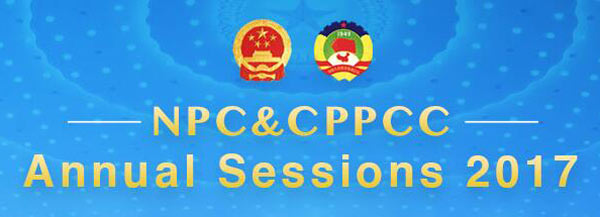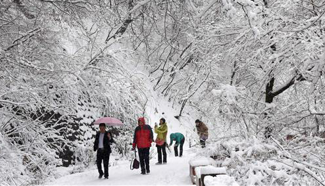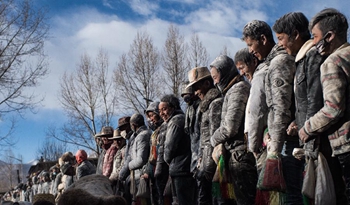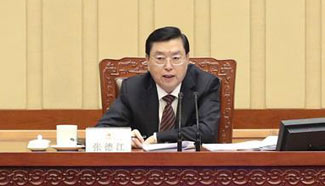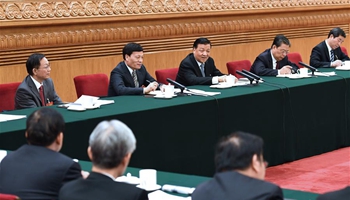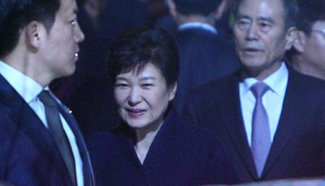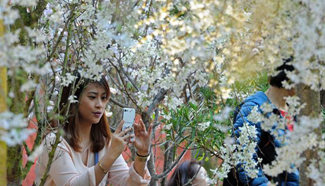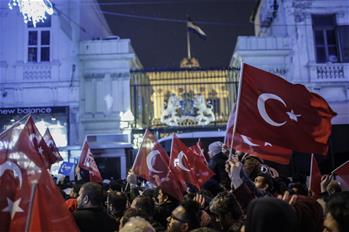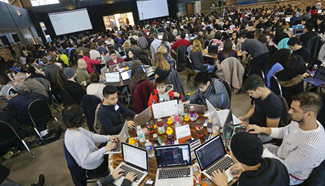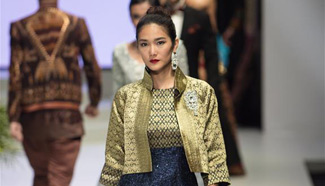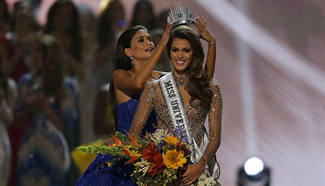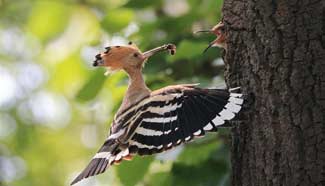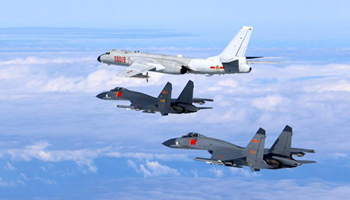BEIJING, March 12 (Xinhua) -- Despite a busy schedule at the two sessions, Dao Shuren sticks to his daily Buddhist practice. He sits in meditation for half an hour after waking up and chants scripture before sleep.
The 82-year-old lay Buddhist is the head of the Buddhist Association of Yunnan Province and has been a member of the National Committee of the Chinese People's Political Consultative Conference (CPPCC), the top political advisory body, for the past 20 years.
Dao says the Buddhist aspiration to "glorify the country and benefit sentient beings" coincides with the duties of a political advisor, as both stress the importance of serving the country and the people.
As a national political advisor and religious leader, Dao has worked to promote people-to-people exchanges and strengthen talent cultivation among Buddhists.
In addition to religious issues, Dao, a member of the Dai ethnic group, also focused on ethnic minority issues. At the ongoing "two sessions, " he suggested an institution be established to study historical documents from the 1950s from regions inhabited by ethnic minorities.
Poverty alleviation has also been a focus of both Dao's work and that of the Chinese leadership in recent years.
"Buddhists cherish the ideal of 'delivering oneself and all beings from misery and sufferings,' which is in line with the philosophy of poverty reduction," he said.
Dao often travels in Yunnan's poor areas, calling upon local Buddhist temples to perform charity work.
"The monks and nuns also have their part to do in poverty relief, such as helping villagers grow cash crops, treating illness with their mastery of traditional Chinese medicine, and raising donations and participating in rescue efforts when natural disasters occur," he said.
"It is my duty to be a voice for the religious circle through the platform of the CPPCC and contribute to social causes with my religious background," he said.
The current 12th National Committee of the CPPCC consists of
more than 2,000 national political advisors, including 65 representing religions communities, including Buddhist masters, living Buddhas, Taoists,imams, and priests. Dao is one of the 102 political advisors representing ethnic minorities.
Dao said the CPPCC offers a golden opportunity for leaders of different religions to sit down together to learn about policy and discuss religious,political and social issues, he said.
"When conducting international exchanges, friendly relations among representatives of China's different religions often impress our foreign counterparts," he said.
Dao still remembers his first foreign trip as a religious representative in 1984, when he traveled to Nairobi with several other Buddhist and Taoist representatives for the World Conference on Religion and Peace.
"Some foreigners were astonished to see us as they thought religious beliefs were not allowed in China," he said.
Frequent foreign exchanges have helped eliminate misunderstandings. Dao said now he has friends from various religions in dozens of countries.
Dao was born to a Tusi family in Menghai County of Xishuangbanna Dai Autonomous Prefecture in Yunnan. Tusi were tribal leaders appointed to govern ethnic minorities in feudal China. The system was not abolished until the 1950s in parts of the country.
Like most Dai people, Dao is a follower of Southern Buddhism, which is found in countries such as Sri Lanka, Myanmar, Cambodia, Laos, India, and Thailand, as well as among the minorities of China's Yunnan Province.
As a layperson, Dao follows the "five precepts" according to Buddhist teachings -- abstaining from killing, stealing, illicit sexual conduct, false speech and intoxicants.
"The core of Buddhism is to teach people to be well-behaved and compassionate, which is similar to that of other religions and fits with the requirements of good citizenship in the modern age," he said.
"Focusing on similarity while reserving differences is the key to achieving harmony," he said. "The CPPCC offers a platform for people with different beliefs to exchange varied opinions while seeking consensus."
According to the report on the work of the Standing Committee of the CPPCC National Committee delivered on March 3, various efforts were made to promote religious harmony during the past year.
